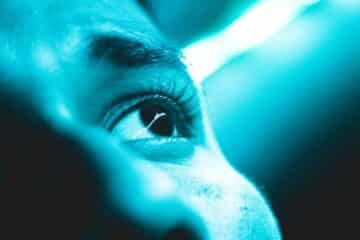SAD (Seasonal Affective Disorder)
Seasonal Affective Disorder, or SAD, affects many Americans each year; particularly affected are those living in the Northernmost states, where seasonal changes are the most pronounced. It is defined as a type of depression (or anxiety in rarer cases) directly related to the change of seasons, where symptoms begin and end at the same time of year each year. The most common type affects persons during the fall and winter months, but there is also a less common type affecting people during the summer.
Common symptoms of SAD include: depression most of the day and every day, low energy, sleep issues, changes in appetite and weight, poor concentration, loss of interests or activities you usually enjoy, sluggishness (or agitation), hopelessness, worthlessness, or guilty feelings. Sufferers from the winter (more common) version of SAD may tend to oversleep, crave carbohydrates, gain weight and be generally tired and lacking energy for even basic life tasks. Summer (rare) SAD sufferers tend towards insomnia, lack of appetite, weight loss and agitation or anxiety.
Western medical treatments include medications, psychotherapy, light therapy or Vitamin D supplementation. Medications usually fall in the SSRI category, as Serotonin levels are believed to be a component of the disorder. Light therapy of 20-60 minutes daily exposure to 10,000 Lux cold white fluorescent light (20x more intense than normal lighting), is believed to stimulate the Pineal gland to regulate melatonin levels – which help control sleep patterns and mood. Vitamin D is also useful in regulating serotonin and melatonin levels. Cognitive Behavior Therapy helps identify areas where new habits or thought patterns can be created to replace negative thoughts with more positive ones.
In Chinese Medicine failure to be able to move through the seasons smoothly is often viewed as a Kidney or Heart issue.
The winter version of SAD is related to Kidney. In Chinese Medicine Kidney rules the winter months. Our Kidney function is responsible for the correct storage of the energies needed to power the body throughout the cold months. If Kidney Yang (the active energizing force) is weak, the lack of heat, light and activity that is common in winter creates the tendency to want to rest and conserve what energy there is. Craving carbs is a good sign of this since they give fast and instant (but not long lasting) energy to the system.
Summer SAD is similar in its relationship to Kidney. Kidney is weakest in summer – the season of fire and the Heart in Chinese Medicine. Weak Kidney Yin (the cooling restful force) cannot keep up with the need to keep cool. Heat builds up and “over stokes” the Heart function, creating agitation in the body. Lack of appetite occurs because the “fire” just doesn’t need any more fuel as it’s already over abundant.
Acupuncture and herbs treat both types of SAD well. Specific points can be chosen to regulate the Pineal gland and balance sleep patterns, release built up energy or fill an energy gap. And, of course, the health of the Kidney organ system is always key to getting to the root cause of the problem.
As usual, each and every case is thoroughly diagnosed and treated on a very individual basis. Check in with AHHA today and start moving towards enjoying better health all year long, regardless of what Mother Nature throws at you!


